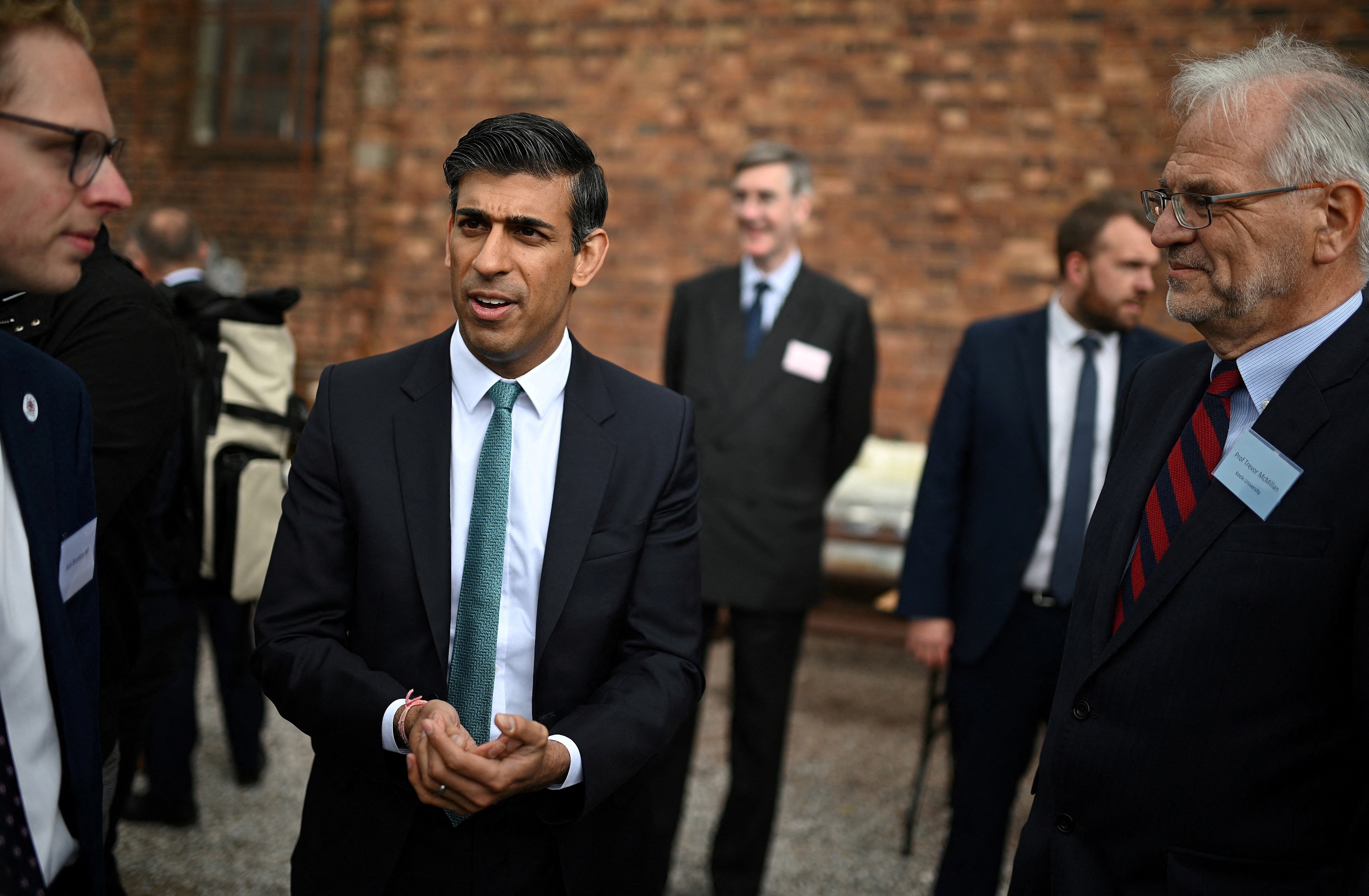Can Rishi Sunak, with his ‘Ponzi scheme reputation’, make a comeback?
The chancellor is down, but not out – although it will take a long time for his reputation to recover, writes John Rentoul


One of the conventional wisdoms that seems mistaken is the idea that Rishi Sunak should have resigned when he received a penalty notice for taking part in a lockdown gathering in Downing Street.
The chancellor hesitated for seven hours after hearing from Scotland Yard last month that the police thought he had broken the law by turning up early for a ministerial meeting. The debate between him and his aides bore some superficial similarity to that engaged in by Keir Starmer and his advisers over whether he should say he would resign if fined.
The argument for Sunak resigning was that he would preserve his integrity and draw a contrast with the boisterous approach to ethics of the prime minister. The calculation was that he would then be well placed to contest the leadership from his lofty vantage point on the moral high ground when Boris Johnson was eventually ousted.
I don’t believe it. Sunak’s reputation had already been torched by a badly judged spring statement, and the revelation of his wife’s non-dom tax status. Any credit he would supposedly gain from a principled resignation would have been lost in the maw of oblivion that swallows up former ministers.
He was right to stay in office. Although his leverage over the prime minister has been much reduced, the Treasury remains the most powerful department – and by retaining a place at the cabinet table, he has a better chance of eventually succeeding to the top job than as a lost and discredited figure on the backbenches.
Staging a comeback from the valley of unpopularity in which he found himself will take some time, though. Politics works at different speeds. Losing a reputation can be extremely fast. Gaining a reputation can happen at speed, although perhaps not quite as quickly. Sunak himself demonstrated both of those trajectories, rising quickly and falling even more quickly. Slowest of all, though, is the long, arduous work of rehabilitation. Johnson knows about that: his career seemed to be over after Michael Gove destroyed his leadership campaign on the launchpad in 2016, but three years later his career was back on track.
So it was probably too early for Sunak to start the work of a comeback in the House of Commons today. He had two outings in the chamber today, first at Treasury questions, and then responding for the government in the economics section of the Queen’s Speech debate.
Neither went well for him. Rachel Reeves, the shadow chancellor, asked a flatly brutal question about why he hadn’t closed the non-dom tax “loophole”. He ignored that point and answered the rest of her question, saying that the broadest shoulders were bearing the burden of extra taxes: the top 15 per cent of earners will pay more than half the money raised by the rise in national insurance.
He is on solid ground on the substance, pointing out that Labour would also have to raise national insurance or income tax to pay for the NHS, but politics – at this stage of a parliament – isn’t much about substance. It’s about his being portrayed as the defender of the rich, highly mobile international elite, and of the oil and gas companies, which have made unexpected profits.
In the Queen’s Speech debate, Sunak was up against Ed Miliband, who doesn’t shadow any actual government department – shadowing his old department of energy and climate change instead – and who seems liberated to spend his time thinking up insults. He came up with a good one, comparing the chancellor’s reputation to the collapse of crypto-currencies: “How similar they are … came out of nowhere, the value surged, looked like the future, but it’s all turned out to be one giant Ponzi scheme.”
To keep up to speed with all the latest opinions and comment sign up to our free weekly Voices Dispatches newsletter by clicking here
Miliband had just enough substance to work with in the debate itself, because the Labour policy of a windfall tax is one clear dividing line that puts the party on the side of the people against a government that has got itself inexplicably snagged on the hook of defending unforeseen and unmerited profits.
Sunak did his best to defend the indefensible, saying that the government was “pragmatic” on the question of a windfall tax, and that if the companies didn’t increase their investment “soon”, it was an option that would be on the table. It is hard to understand, though, why he hasn’t stolen Labour’s policy already. If the government adopted it, Reeves and Miliband would have no economic policy whatsoever.
My view remains that, when the Conservative Party needs a new leader, which probably won’t be this year, Sunak has a better shot at it than he currently seems to. He voted Leave, and most of the prominent contenders are Remainers, but he needs time, good budgets and a recovering economy to make it. Today’s mauling showed just how long and slow that recovery might be.






Join our commenting forum
Join thought-provoking conversations, follow other Independent readers and see their replies
Comments